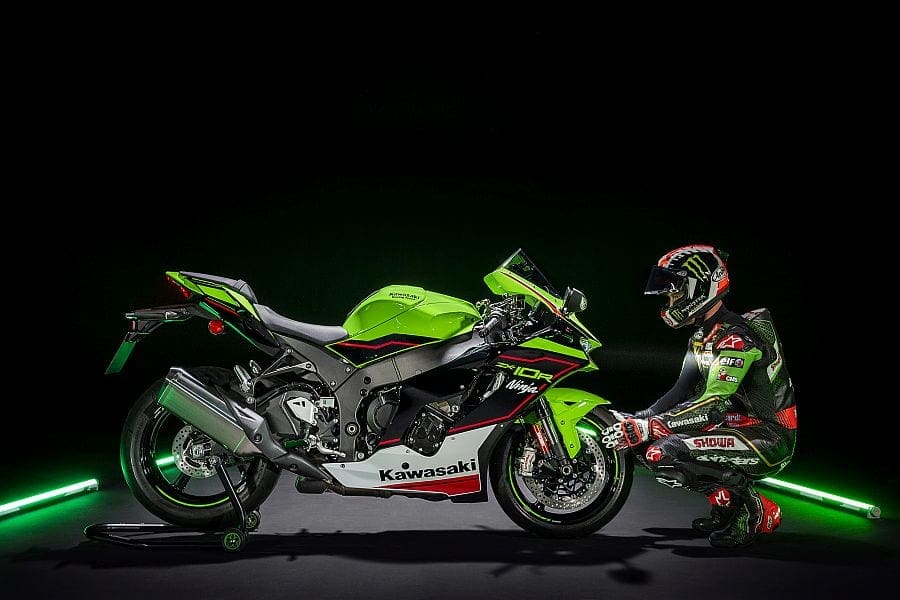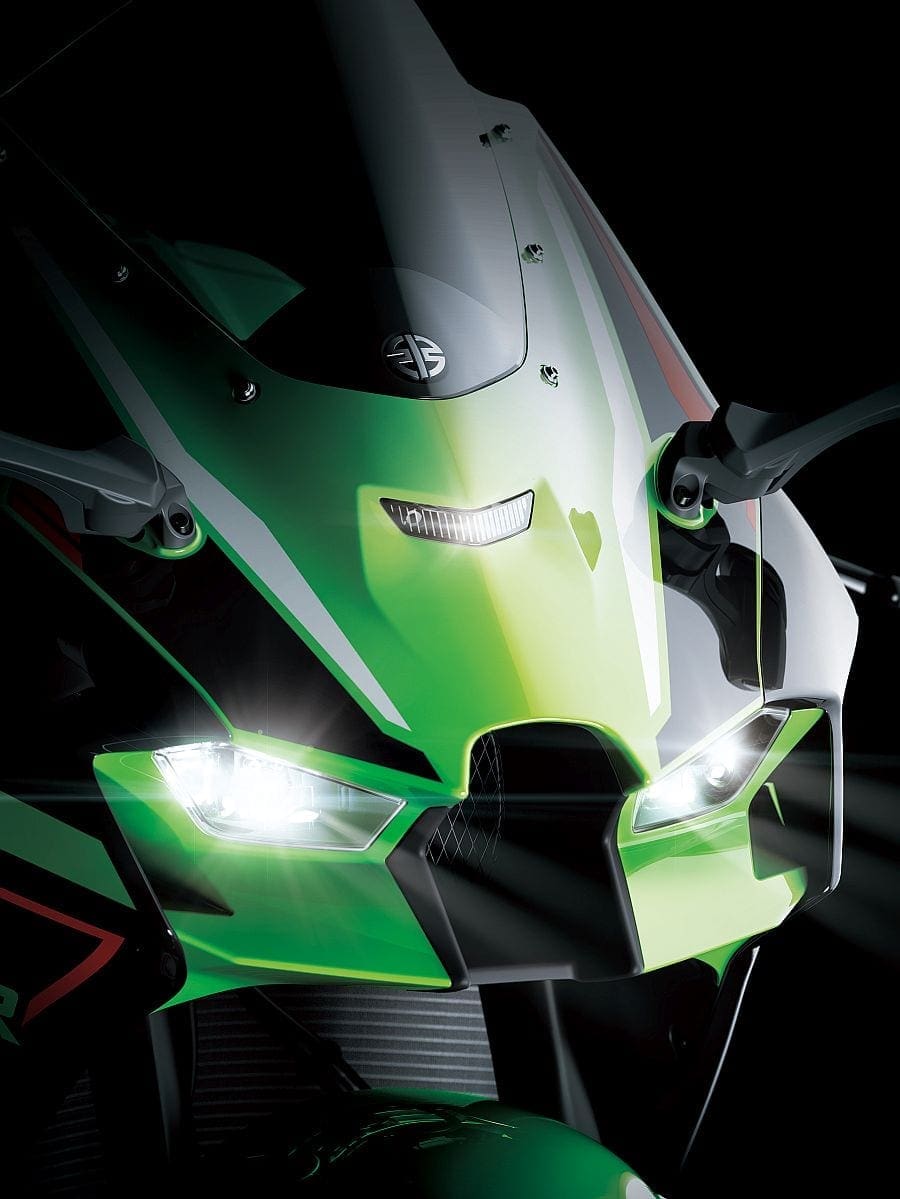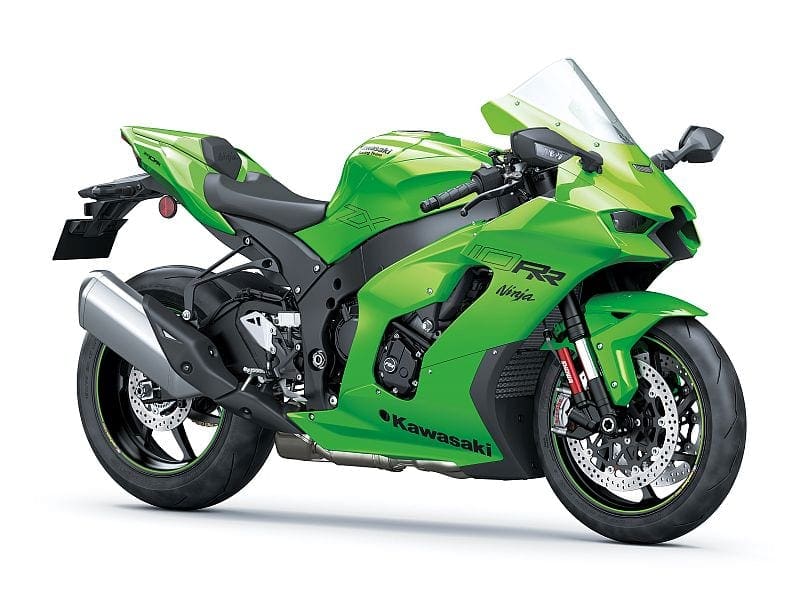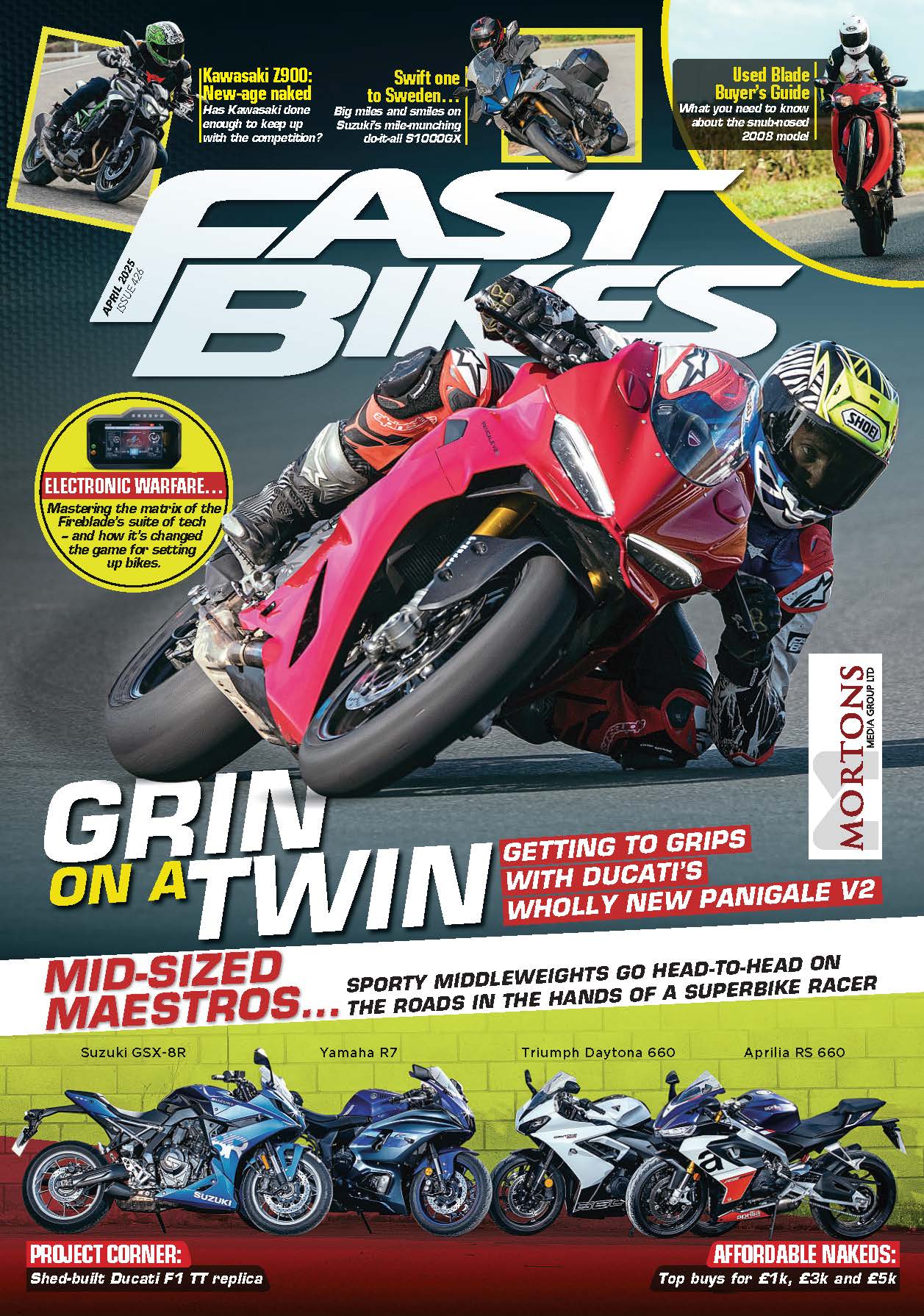
There’s a reason that Kawasaki have won the last six (yeah, six!) WSBK titles – and it’s not just because of the bloke(s) sitting on top...
The ZX-10 platform has been a staple machine on every grid from Monza to Mallory Park, from World Superbike to trackday, and although it isn’t a new bike from the ground-up, Kawasaki have been very busy improving on their proven platform.
So what do you need to know? Well essentially, the engine and chassis remains largely the same, with minute changes to each that will in turn, hopefully chisel out those tenths on track. The riding position has been altered for a racier type position, and the new fairing package has been created with serious aerodynamics and downforce in mind, whilst still gifting the ZX-10R with some seriously saucy components in terms of braking and suspension.
As you can imagine, it also comes laced with all the electronic goodies you’d expect from a superbike platform in this day and age, including Traction Control, Launch Control, ABS, Engine Brake Control, ‘shifter & ‘blipper and power modes, that are all controlled through a Bosch IMU system.

But then again, it’s not just all about performance, as Kawasaki have also given the ZX-10R some road going goodies as well; for the first time, their range-topping sportsbike comes equipped with integrated riding modes, cruise control, and finally… a TFT Dash, with Bluetooth connectivity. Oh, and thankfully, they’ve shortened the gear ratios as well! But, will it be enough to take the Ultimate Sports Bike crown in 2021? We can’t wait to find out. The standard model starts at £15,799, and here’s exactly what you need to know:
Engine – Essentially, the 2021 ZX-10R uses the same engine as the previous model but has slightly modified, meaning that even though it meets the Euro5 emissions jazz it hasn’t lost any power. There’s a new air cooled oil-cooler with its own independent circuit, the accelerator position sensor has been relocated, the exhaust have been redesigned and the gear ratios have also been shortened. The new RR also gets updated intake funnels, camshafts, pistons and valve springs alongside its special goodies. Chassis- Although the chassis is largely the same, Kawasaki have made a few alterations the geometry. The swingarm pivot is 1mm lower and the wheelbase has been extended 10mm, which goes alongside a 2mm greater fork offset and an 8mm longer swingarm. This means the new ZX-10R has a shorter trail, and gives the ZX-10R a new front/rear balance; 0.2% more forwards, to be exact.
Suspension– The ZX-10R comes equipped with Showa’s advanced 43mm Balance Free Front Forks, with revised, firmer settings and a wider fork clamp area for rigidity. The latest Showa Balance Free Rear Cushion shock now comes with a stiffer spring and softer damping.
Brakes– Dualhigh-spec Brembo M50 Monobloc calipers and chunky 330 mm semi-floating discs take care of stopping, alongside a specially prepared radial-pump master cylinder. The rear brake pads have been revised, as has the rear brake reservoir position.
Aero– The new aero package means that drag resistance is down by about 7%, with a 17% increase in downforce, thanks to the new front cowl and integrated winglets. The ZX-10R’s windshield is now 40mm taller and at a steeper angle as well, with a large upper cowl.
Riding Position– The handlebars are now 10mm further forward whilst the rear of the seat and the footpegs are both higher, which makes for a more aggressive, forward riding stance.
Tech– Kawasaki have gone to town on the new ZX-10 range, gifting it a Bosch IMU, which includes a bundle of new features such as integrated riding modes, Electronic Cruise Control and even a TFT dash that will connect to your smartphone. This goes alongside their raft of rider aids, which include everything you’d expect from a range-topping litre sports bike.
The ZX-10RR:

Limited to 500 units worldwide, the new RR is Kawasaki’s track focused homologation weapon. It essentially has everything on the R, and more; as standard, it has that recognisable lime green colour colour scheme and single seat unit, alongside a few other bits to help out on track, including a slightly tweaked engine with a higher rev limit, Pankl titanium connecting rods and lightweight Marchesini forged wheels.




